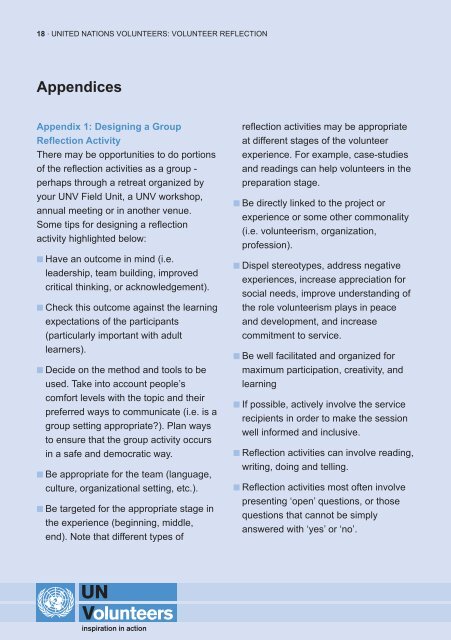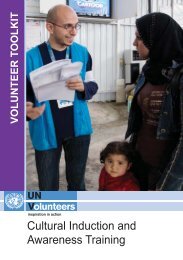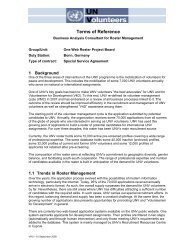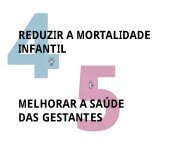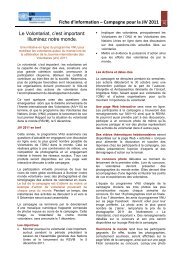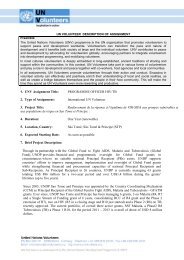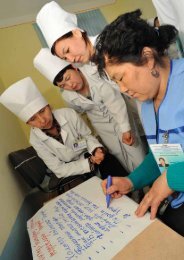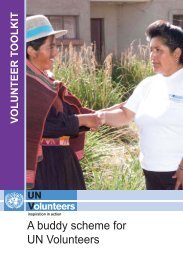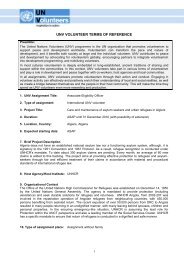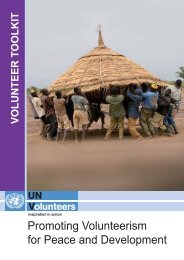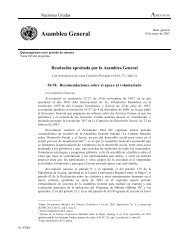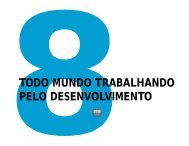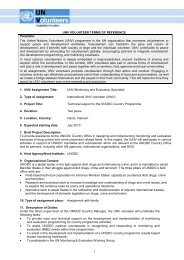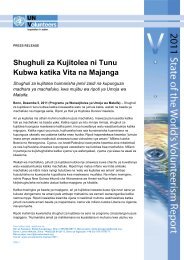Volunteer reflection - United Nations Volunteers
Volunteer reflection - United Nations Volunteers
Volunteer reflection - United Nations Volunteers
Create successful ePaper yourself
Turn your PDF publications into a flip-book with our unique Google optimized e-Paper software.
18 . UNITED NATIONS VOLUNTEERS: VOLUNTEER REFLECTIONAppendicesAppendix 1: Designing a GroupReflection ActivityThere may be opportunities to do portionsof the <strong>reflection</strong> activities as a group -perhaps through a retreat organized byyour UNV Field Unit, a UNV workshop,annual meeting or in another venue.Some tips for designing a <strong>reflection</strong>activity highlighted below:■ Have an outcome in mind (i.e.leadership, team building, improvedcritical thinking, or acknowledgement).■ Check this outcome against the learningexpectations of the participants(particularly important with adultlearners).■ Decide on the method and tools to beused. Take into account people’scomfort levels with the topic and theirpreferred ways to communicate (i.e. is agroup setting appropriate?). Plan waysto ensure that the group activity occursin a safe and democratic way.■ Be appropriate for the team (language,culture, organizational setting, etc.).■ Be targeted for the appropriate stage inthe experience (beginning, middle,end). Note that different types of<strong>reflection</strong> activities may be appropriateat different stages of the volunteerexperience. For example, case-studiesand readings can help volunteers in thepreparation stage.■ Be directly linked to the project orexperience or some other commonality(i.e. volunteerism, organization,profession).■ Dispel stereotypes, address negativeexperiences, increase appreciation forsocial needs, improve understanding ofthe role volunteerism plays in peaceand development, and increasecommitment to service.■ Be well facilitated and organized formaximum participation, creativity, andlearning■ If possible, actively involve the servicerecipients in order to make the sessionwell informed and inclusive.■ Reflection activities can involve reading,writing, doing and telling.■ Reflection activities most often involvepresenting ‘open’ questions, or thosequestions that cannot be simplyanswered with ‘yes’ or ‘no’.


